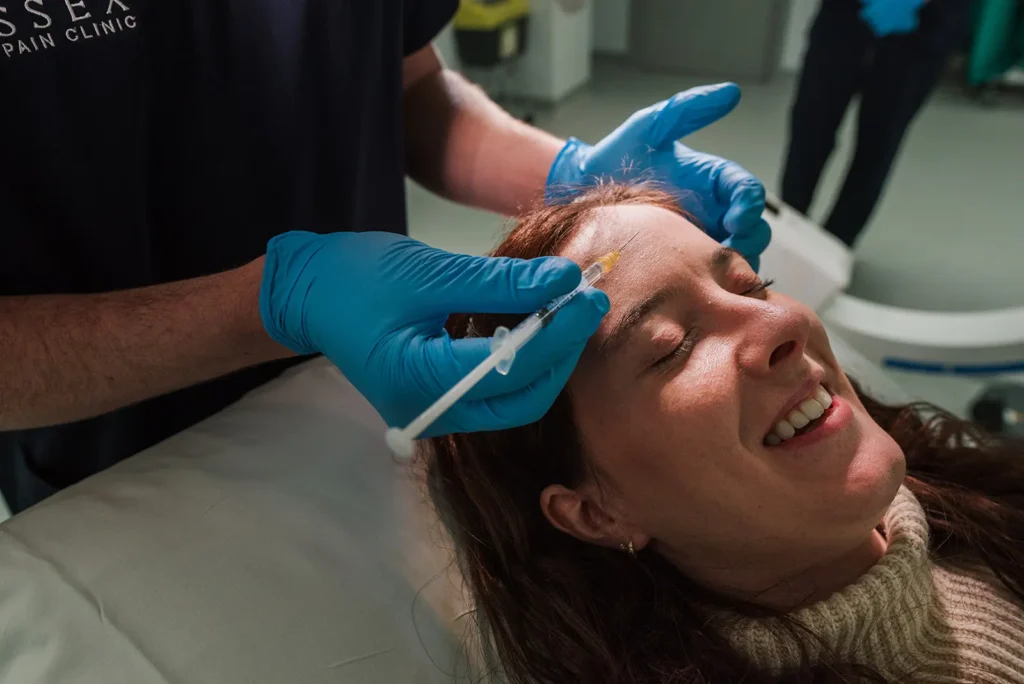Headaches and migraines are common yet potentially debilitating conditions that can seriously impact your daily life. While a general headache may involve mild to moderate pain in your head or face, migraines often manifest as intense throbbing, frequently on one side of the head. These episodes may be accompanied by nausea, vomiting, and sensitivity to light or sound.
Common triggers include stress, hormonal changes, certain foods, and environmental factors such as bright lights or strong smells. By identifying these triggers, you can take proactive steps to reduce both the frequency and intensity of your headaches or migraines.

At Wessex Pain Clinic, our doctor-led team begins with a comprehensive medical history, discussing your symptoms, triggers, and any patterns you may have noted. We might ask you to maintain a headache diary to record the timing, duration, and severity of each episode, along with any related factors like diet or stress levels.
A physical and neurological examination helps us rule out other causes. Where necessary, we may recommend imaging studies, such as an MRI or CT scan, to exclude structural issues and gain clearer insights into your condition.

Over-the-counter pain relievers, such as paracetamol and NSAIDs, may ease mild headaches. For more severe migraines, triptans can help by targeting specific pathways involved in migraine attacks. In chronic cases, beta-blockers or certain antidepressants can be prescribed as preventive measures.
Headache and Migraine injections are sometimes recommended for chronic migraine sufferers. They are NICE approved, yet it is a treatment often overlooked. These interventions target pain pathways, reducing both the intensity and frequency of attacks. A significant number of patients find these injections to be transformational in their migraine management, restoring quality of life, previously impacted by debilitating migraines.
Stress management, regular sleep, and dietary adjustments can minimize triggers. Physical therapy, cognitive behavioural therapy (CBT), and relaxation techniques may further reduce pain. Some patients benefit from acupuncture or biofeedback, which offer alternative routes for managing headache symptoms.
Our friendly team is on hand to support you every step of the way. Please get in touch at any time.